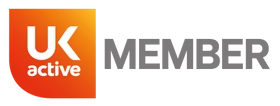Fast-track personal trainer programmes offer an expedited educational path tailored to those eager to enter the health and fitness industry with speed and efficiency. These dynamic programs condense the comprehensive curriculum of traditional trainers' courses, enabling learners to acquire essential skills and knowledge within a significantly shortened timeframe.
Distinguished from their conventional counterparts, fast-track qualifications adapt to the urgent demands of career changers and fitness enthusiasts whose time is at a premium, yet who seek to uphold high professional standards upon entering the field.
Certification and Qualification: Are Fast-Track PT Courses Valid?
Identifying the legitimacy of any fast-track personal training (PT) course is critical for future success.
>>LEARN MORE: Gain an accredited personal training qualification
Accreditation by a recognised body is the hallmark of validity. In the UK, the Chartered Institute for the Management of Sport and Physical Activity (CIMSPA) and ActiveIQ are two prominent accrediting organisations.
These entities endorse programs whose curriculum, assessment, and educational standards pass rigorous scrutiny, signifying that graduates possess the requisite knowledge and skills.
The possession of an ActiveIQ accreditation, for instance, signals that the personal trainer has undergone a program with a curriculum aligned with the Register of Exercise Professionals (REPs) standards. Similarly, CIMSPA recognition assures that a PT qualification meets the employers' professional standards and is set against the sector's professional standards framework. Hence, a certification from either body grants not just a competitive edge but also a ticket to a wide array of job opportunities within the industry.
Prospective PTs are thus encouraged to thoroughly research the credentials of the fast-track courses they consider. When such accreditations are present, clients and employers can rest assured in the fast-track PT qualification's industry relevance and recognition, translating to a secure investment in one’s professional development.
Decoding the Time Investment for Accelerated PT Qualifications
Fast-track PT programs offer a quicker route to becoming a personal trainer, with durations significantly shorter than traditional educational paths.
Students enrol in these programs with the understanding that they can enter the workforce sooner, often in a matter of months instead of years. These expedited programs require a profound dedication from participants, who must absorb a large quantity of information in a limited period.
Fast Track vs. Traditional Program Durations
While standard PT programs typically extend over several years, fast-track PT qualifications are designed to be completed within an abbreviated timeframe. Often, these programs can be finished in under a year, contrasting the lengthy commitment required for conventional routes that usually unfold over three to four years.
Weekly Time Investment for Fast Track Students
Accelerated learning necessitates heightened time expenditures each week. Students should anticipate dedicating upwards of 30 hours a week to coursework, lectures, and hands-on practice. In contrast with traditional programs, accelerated courses pack each week with intensive learning objectives and assignments, maximizing every hour of the student's schedule.
Employment Prospects After Quick PT Qualification
Graduates emerging from fast-track Personal Trainers programs enter a dynamic job market. Research indicates that while there exist opportunities for positions such as personal Trainer, some employers may harbour reservations towards candidates with accelerated qualifications. They frequently seek individuals with comprehensive training and robust gym experience.
Insight into the Job Market for Fast Track PT Graduates
The landscape for quick PT qualification holders features a variety of roles in settings such as rehabilitation centres, private practices, and hospitals. Despite the range of opportunities, the competition remains high, with employers scrutinizing the depth of practical experience and the breadth of knowledge applicants possess.
Understanding Employer Preferences
Evidence gathered from employer surveys and hiring trends shows a preference for candidates with extensive and fully-rounded educational backgrounds. Due to the condensed nature of fast-track programs, graduates might encounter skepticism concerning their readiness to handle the full spectrum of responsibilities in a PT role immediately upon entering the workforce.
- Employers assess candidates on their ability to apply complex treatment plans.
- Critical thinking and problem-solving skills developed over longer courses may be under higher scrutiny.
- Interpersonal and communication skills, essential for patient interaction, must be demonstrated competently by fast-track graduates.
Maximizing Employment Potential
Demonstrating a commitment to ongoing education can mitigate some employer concerns. Graduates of fast-track PT programs will benefit from showcasing continuous professional development, participation in additional certification programs, and other forms of specialized training.
Engagement with professional networks can also enhance prospects. Involvement in PT communities and associations often leads to valuable connections and increases visibility among potential employers.
Can you transition into the Workforce as a Fast Track PT Graduate?
Graduates of fast-track personal trainer programs are uniquely poised to enter the professional world. The intensity of their training ensures they are job-ready quicker than their peers from traditional programs. As they begin their job search, networking should be leveraged from gym experiences and professional development activities.
Adapting from a student to a professional role presents challenges such as managing time effectively, adapting to workplace cultures, and continuing skill development. An understanding of the human body and learning through exercise, emphasized in most PT curriculums, allows graduates to apply practical knowledge confidently in real-world settings. Moreover, this transition is characterized by the responsibility of maintaining accurate patient records, developing treatment plans, and applying evidence-based practices.
Training companies play a significant role in providing practical experiences that align with fast track curriculums. These connections can be invaluable for graduates looking to enhance their job prospects. For those considering entrepreneurship, fast track qualifications offer a robust foundation for starting or operating a fitness business. These programs instill essential business acumen and impart advanced PT knowledge, allowing graduates to distinguish themselves in the competitive fitness industry.
Many PT graduates also opt to specialize as personal trainers. Their comprehensive background enables them to cater to a specialized gym clientele, ranging from athletes seeking performance enhancement to individuals requiring post-rehabilitation fitness programs. Integrating the nuanced understanding of anatomy, physiology, and client management allows for a seamless transition from academic to professional practice.
Discover Your Potential with Fast Track PT Qualifications
Fast track PT qualifications present an attractive path for individuals keen to pivot into PT without the extended timeline of traditional programs. These courses enable students to meet professional standards swiftly, facilitating a quicker transition to practice. The critical decision points for prospective students encompass program credibility, curricular specifics, cost, mode of delivery, and available support for license examination preparation and career placement.
As you reflect on the components of fast track PT programs , consider how your personal and professional goals align with the intensive nature of accelerated learning. Examine the quality of education, the face-time with experienced instructors, the depth of hands-on gym experiences offered, and how these aspects will equip you for a competitive workforce. Weigh the considerations of online versus in-person courses, reflecting on your learning style and life commitments.
Analyze the financial investment and investigate the financial aid opportunities that may offset the tuition costs of fast track PT qualifications . Ponder the post-graduation prospects such as employment opportunities, the potential for professional networking, and the paths for further specialization and ongoing education. These factors will inform your decision and shape your career trajectory.
The journey to becoming a personal trainer through a fast-track program is not a good idea.
Take the Leap: Accelerate Your PT Career
If you're contemplating whether a fast track PT qualification is the right move for you, reach out for more information. Seize this opportunity to gain vital knowledge and skills that can lead to a fulfilling career To explore your options further, sign up for a program consultation or request additional details today.







